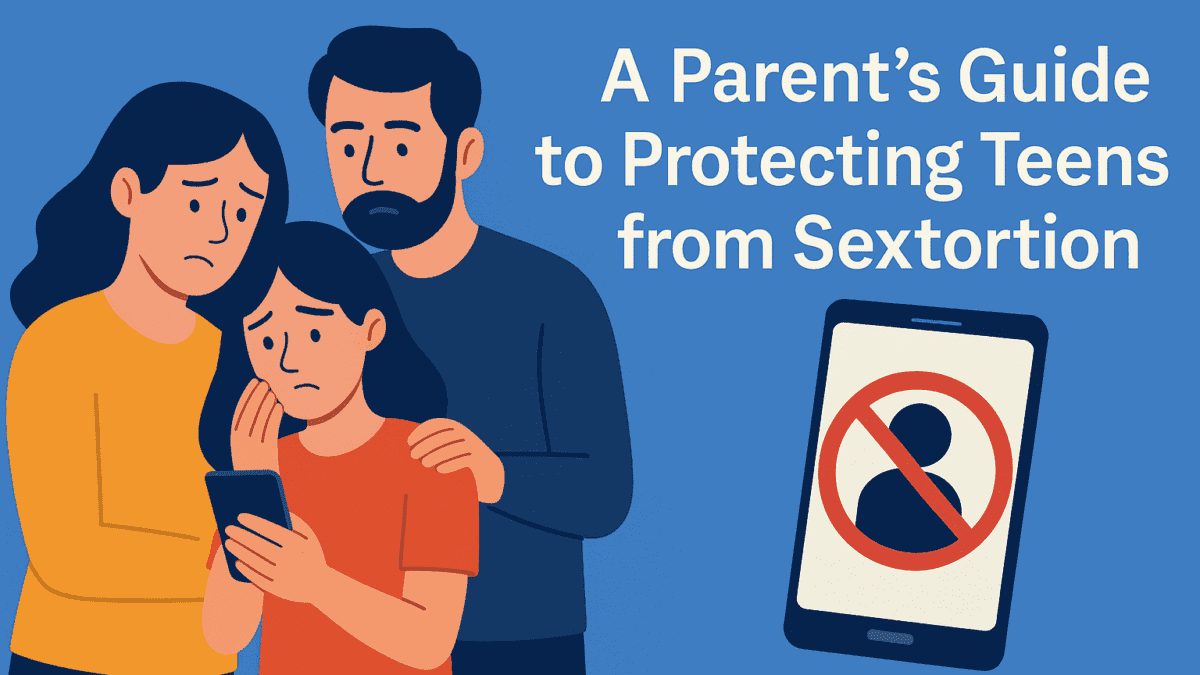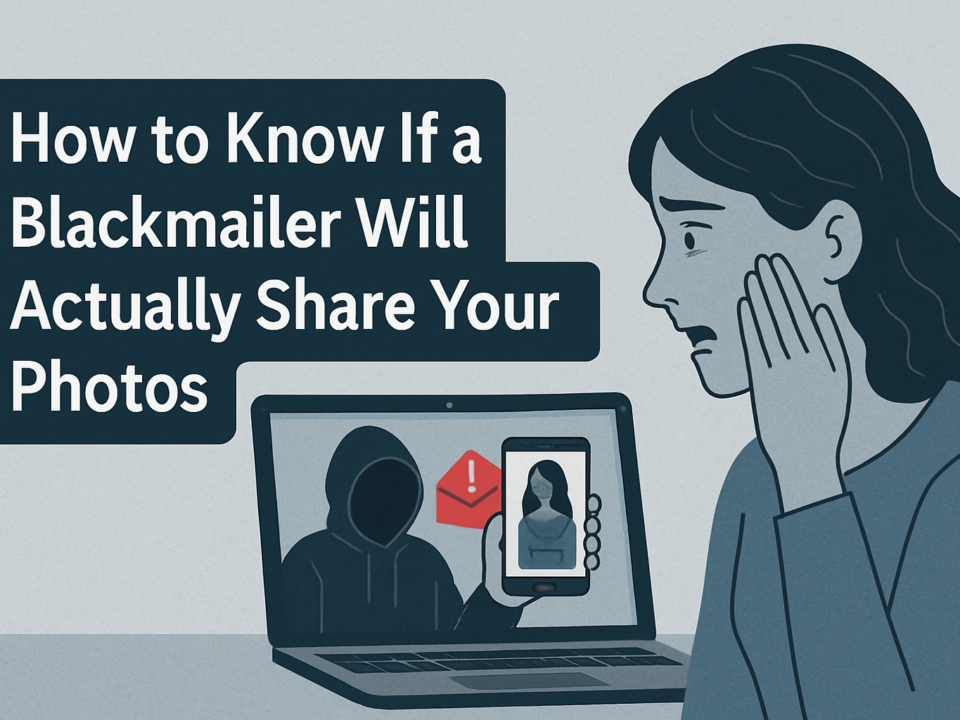
Can You Sue a Blackmailer? Here’s What the Law Says
June 18, 2025
Deepfake Sextortion: How Parents Can Protect Teens in the Age of AI Threats
June 18, 2025When Your Teen Is Online, So Are the Predators
Today’s teenagers live much of their lives online — sharing, chatting, exploring, and connecting. But behind many friendly profiles are strangers with darker intentions. For parents, that’s a terrifying thought.
One of the fastest-growing threats? Sextortion.
It’s the digital blackmail of this generation — where teens are tricked or pressured into sending explicit images, only to be threatened with exposure if they don’t comply with further demands.
You don’t need to be tech-savvy to protect your child. You just need to know the signs, stay connected, and act early. This guide will help you do exactly that.
What Is Sextortion — and Why Are Teens Being Targeted?
Sextortion is when someone threatens to leak sexual images or videos unless the victim sends more, pays money, or complies with other demands.
Why teens?
They often overshare online
They trust easily — especially on apps like Snapchat, Instagram, and Omegle
They fear consequences from parents or school, which makes them less likely to report the crime
In most cases, sextortion doesn’t begin with threats. It begins with flattery, manipulation, or fake relationships.
Warning Signs Your Teen Might Be a Target
It’s not always obvious, but these red flags can indicate something’s wrong:
Sudden anxiety or fear about checking their phone
Avoidance of certain apps they previously loved
Mood swings, secrecy, or unexplained stress
Quickly deleting chats or refusing to hand over their phone
Receiving gifts, money, or transfers from unknown sources
If something feels “off,” don’t dismiss it. Many teens stay silent out of shame or fear of getting in trouble.
How Sextortion Scammers Usually Operate
Understanding the pattern helps you teach your teen what to watch for:
Fake Profile Setup:
The blackmailer poses as a teen or attractive stranger. They initiate contact on Instagram, Snapchat, or TikTok.Flirt & Build Trust:
Casual chatting becomes flirty. The blackmailer compliments, flatters, and asks for a "private" photo.The Trap Is Set:
As soon as a photo is sent, the mood changes. They demand more — or threaten to expose the image.Fear-Based Control:
Teens are told the image will be sent to their parents, friends, or school if they don’t comply. This fear keeps them trapped.
How Parents Can Help Prevent Sextortion
This is where your role becomes critical. Prevention starts with open communication, not surveillance.
1. Talk About It — Early and Often
Start conversations before a crisis happens. Make it clear they can come to you without fear of punishment.
Phrases you can use:
“You won’t be in trouble if someone is threatening you online.”
“If anyone ever makes you uncomfortable, I want to help — not blame you.”
“It’s okay to walk away from conversations that don’t feel right.”
2. Know What They Use
Understand which apps they’re using and how. Ask about:
Who they follow
Who follows them
If their accounts are public or private
You don’t need to stalk their every message — just stay involved.
3. Teach the Golden Rule of Digital Sharing
Remind them:
“If you wouldn’t want a photo on a school wall, don’t send it to someone online — no matter how much you trust them.”
Explain how screenshots, screen recordings, and fake profiles make “private” sharing risky — even with people they think they know.
4. Use Parental Controls Without Breaking Trust
Tools like Google Family Link, Bark, or Qustodio can monitor device activity. But always pair tools with trust-building conversations — not secrecy.
What If Your Teen Is Already a Victim?
First: Stay calm.
The worst thing you can do is react with anger, guilt, or panic. Your teen needs support — not shame.
Here’s what to do:
Pause and screenshot the messages (don’t delete yet)
Block the blackmailer on every platform
Report the profile on the platform where it happened
Do not pay or send more photos
Visit trusted help sources like Blackmail Shield or law enforcement
For a complete step-by-step, see our guide on how to report sextortion to the police.
Supporting Your Teen Emotionally Afterward
Victims of sextortion often experience:
Anxiety, depression, or social withdrawal
Trouble concentrating in school
Fear of phones, notifications, or messages
Shame and suicidal thoughts
Let them know:
They are not alone
It wasn’t their fault
This doesn't define them
You might consider professional counseling or online youth support groups — especially if the teen is blaming themselves.
You Don’t Need to Be an Expert — Just Present
Sextortion is terrifying, but silence is worse. You don’t have to know everything about technology to be your child’s strongest defense.
The most powerful message you can send is this:
“Whatever happens online, you can always come to me.”




